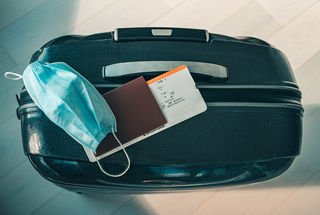What “Duty Of Care” Do Hotels & Resorts Have In 2021?

There have been enough articles written and published on the enduring changes 2020 will have on the hospitality industry. There's no need to rehash all of those. The Duty of Care issue is an emerging one that hoteliers are wise to pay attention to before it becomes part of the many sweeping legislative reforms occurring with the new administration.
Duty of Care is not new. Definitively it is the legal and ethical responsibility that employers have to take all reasonable steps to ensure employee health, safety and security, especially those traveling on behalf of the employer. Like so many other things, the global pandemic has added a special twist of focus and concern for companies with respect to the Duty of Care standard. The coronavirus transmission threat will likely extend the expectation of Duty of Care to encompass all elements of a business travelers' journey, from transportation to the airport until they return home. That includes their lodging and the steps hoteliers are taking to protect guests while on property.
Duty of Care is the number one priority for 80% of travel buyers, according to BCD Travel, underscoring the importance for hotels and resorts to create and publish what steps they are taking to contribute to the safety and security of guests. Increasingly it will become a key differentiator for corporate travel buyers who may use property virus transmission prevention protocols as a qualification for meeting corporate Duty of Care requirements in choosing where to book.
JTB USA Business Travel identifies Health and Overall Wellness as the top area of focus companies should have in a common sense approach to providing Duty of Care to business travelers. Another study by The International SOS Foundation lists travel related infection among the top concerns for business travelers.
Fortunately, most of the major hotel brands and management companies have been proactive in responding to the new expectations surrounding guest health and safety. Hilton Hotels has launched their CleanStay initiative, Marriott has instituted a Cleanliness Council to address virus-transmission prevention in their properties and Aimbridge Hospitality, the largest operator of Hilton, Marriott and Hyatt branded hotels in the world has developed an AIMClean initiative.
"Aimbridge was proactive early on in the pandemic to ensure our hotel teams were trained on proper cleaning and sanitizing, hygiene protocols and social distancing, all rooted in the CDC guidelines and with EPA approved products" states Dave Johnson, Executive Chairman of Aimbridge. "We formalized this into AIMClean, a three-step training and certificate program. We now have nearly 16,000 associates certified, with many more who went through AIMClean training. As corporate travel returns and more associates return to their hotels, AIMClean remains an important part of their onboarding."
Establishing and promoting routine cleaning and social distancing protocols are key elements of the evolving concept of Duty of Care for hoteliers. There is also opportunity for hotel operators to translate this elevated focus on air and surface sanitization into incremental revenue for the hotel through partnering with companies such as Pure Wellness to implement premium rooms that leverage a patented process to create an environment 99.99% free of all viruses, bacteria, allergens and pollutants.
The entire world is anxiously waiting for indications that the threat of COVID-19 transmission is declining. Businesses are anxious to put their people back on planes, trains and other forms of public transportation without concerns that doing so might jeopardize their health. Travel will come back eventually, and when it does hotel and resort operators will likely face a higher degree of scrutiny and expectation when it comes to playing their part in the role of Duty of Care for the business traveler.
About Pure Wellness
Founded in 2006, Pure Wellness is a leading hotel-in-room wellness solutions provider dedicated to delivering mindful, purposeful, and intentional travel experiences. Through its Pure Room platform, Pure Wellness partners with hotels and resorts to transform guest rooms and interior spaces into environments that are free from harmful contaminants, offer hypoallergenic comfort, and promote overall wellness. Trusted by more than 3,000 rooms in leading hospitality brands, Pure Wellness offers hotel owners a turnkey package that provides 99% anti-viral and anti-microbial protection, air quality that exceeds HEPA efficiency, and meaningful market differentiation designed to drive incremental revenue, elevated guest satisfaction, and positive word-of-mouth. For more information, visit www.pureroom.com.